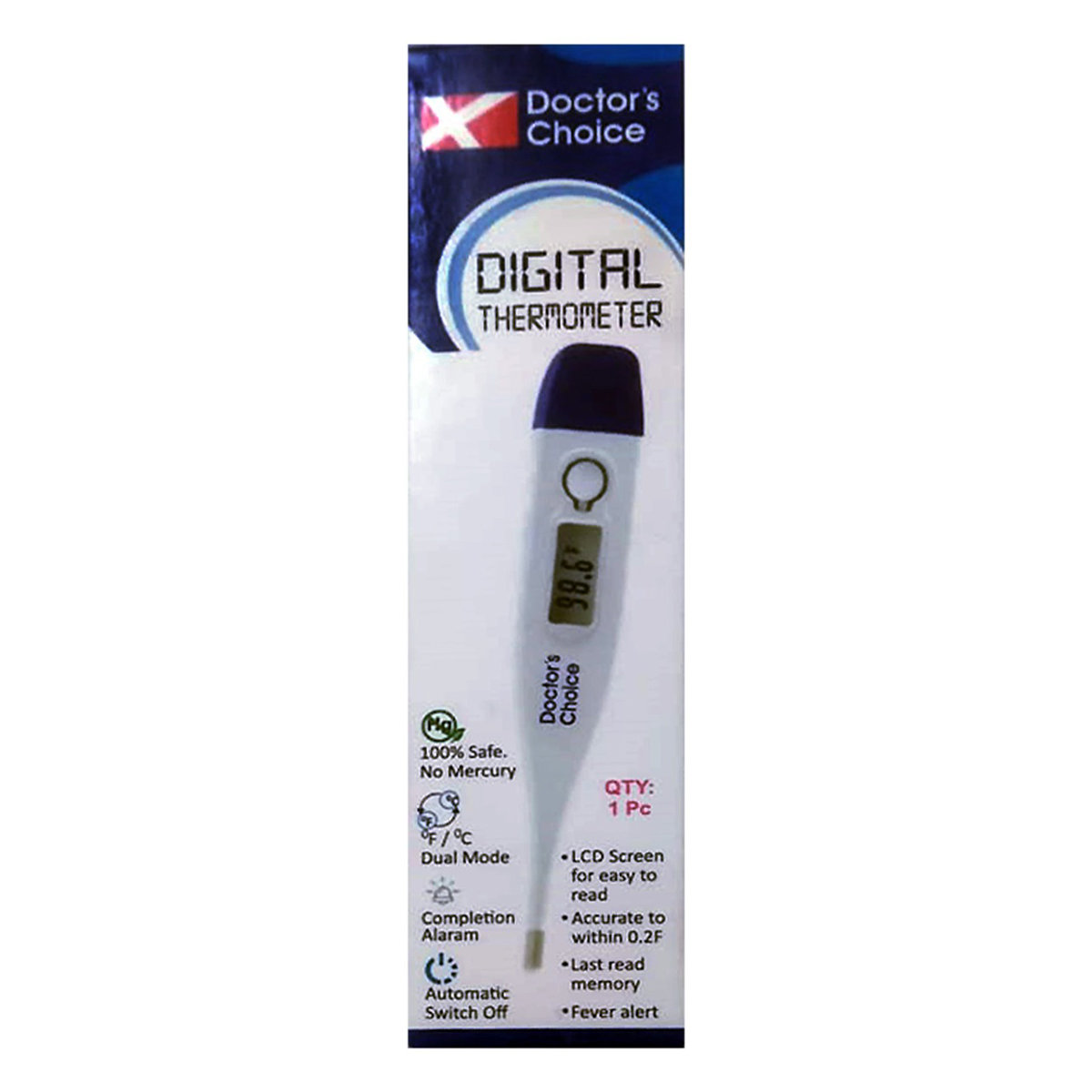- Home
- Apollo Products
- Covid Essentials
Thermometers
Thermometers
- Total Items (6)
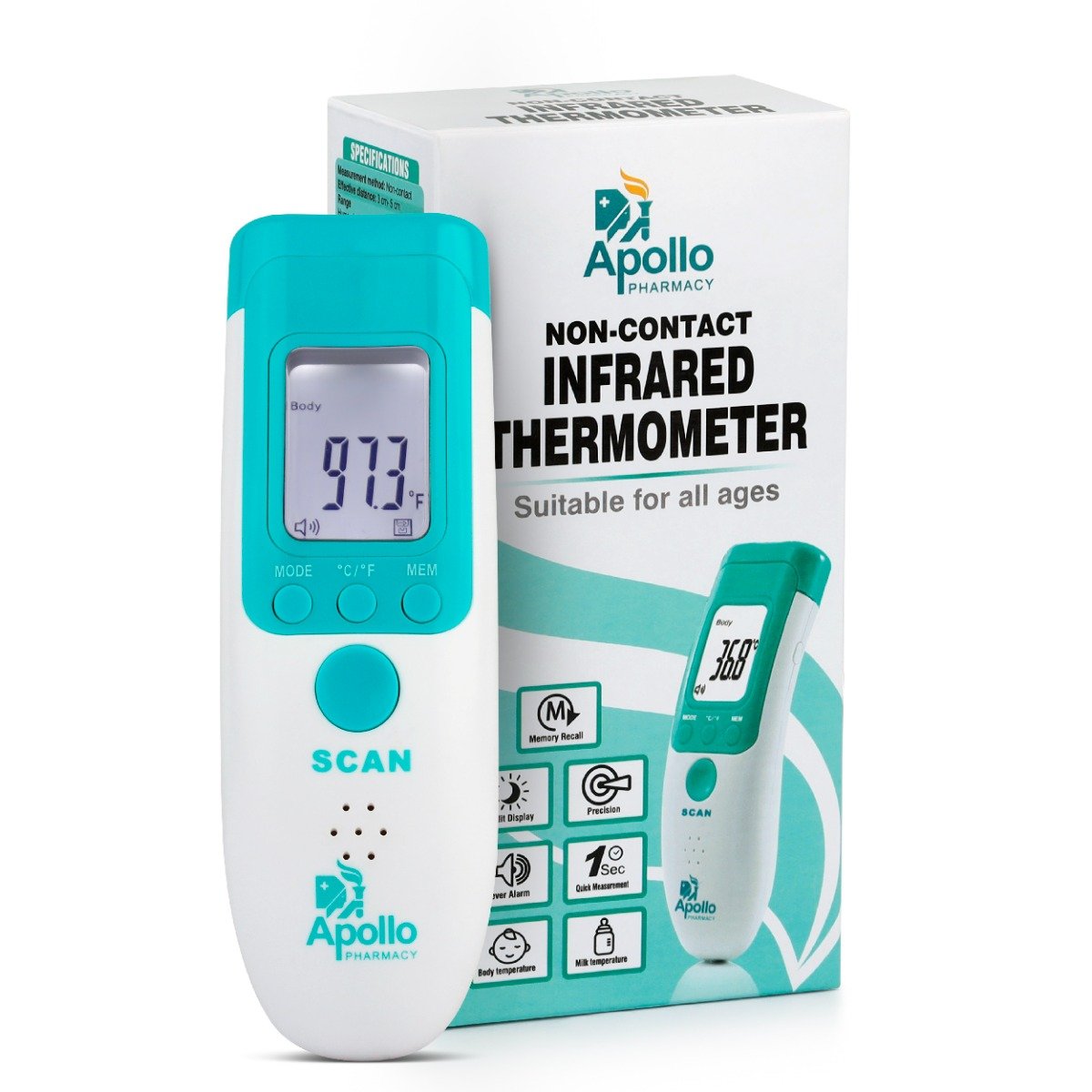
Apollo Pharmacy Non-Contact Infrared Thermometer, 1 Count
₹861.10
MRP ₹978.50
12% off
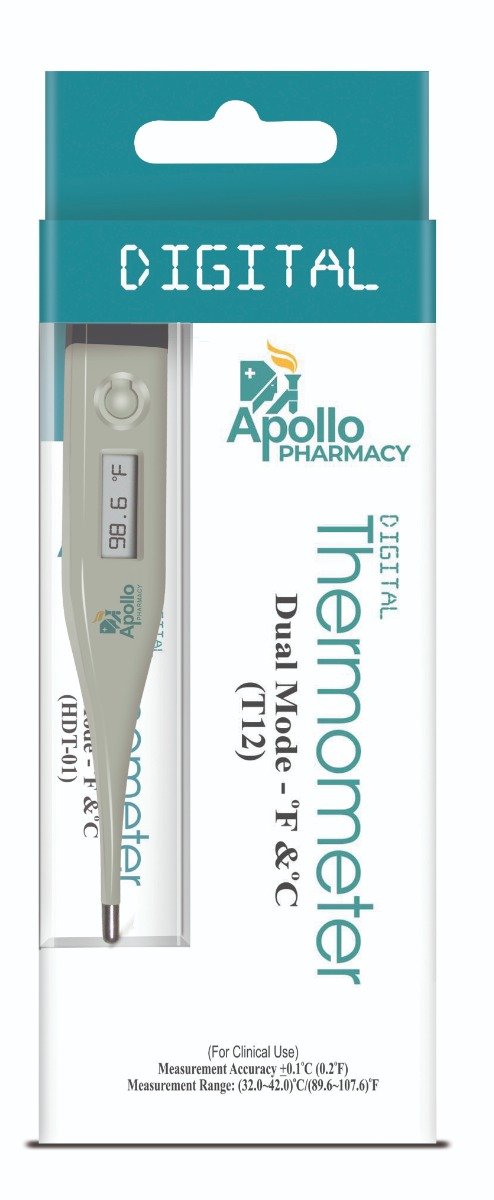
Apollo Pharmacy Digital Thermometer, 1 Count
₹95.90
MRP ₹106.50
10% off
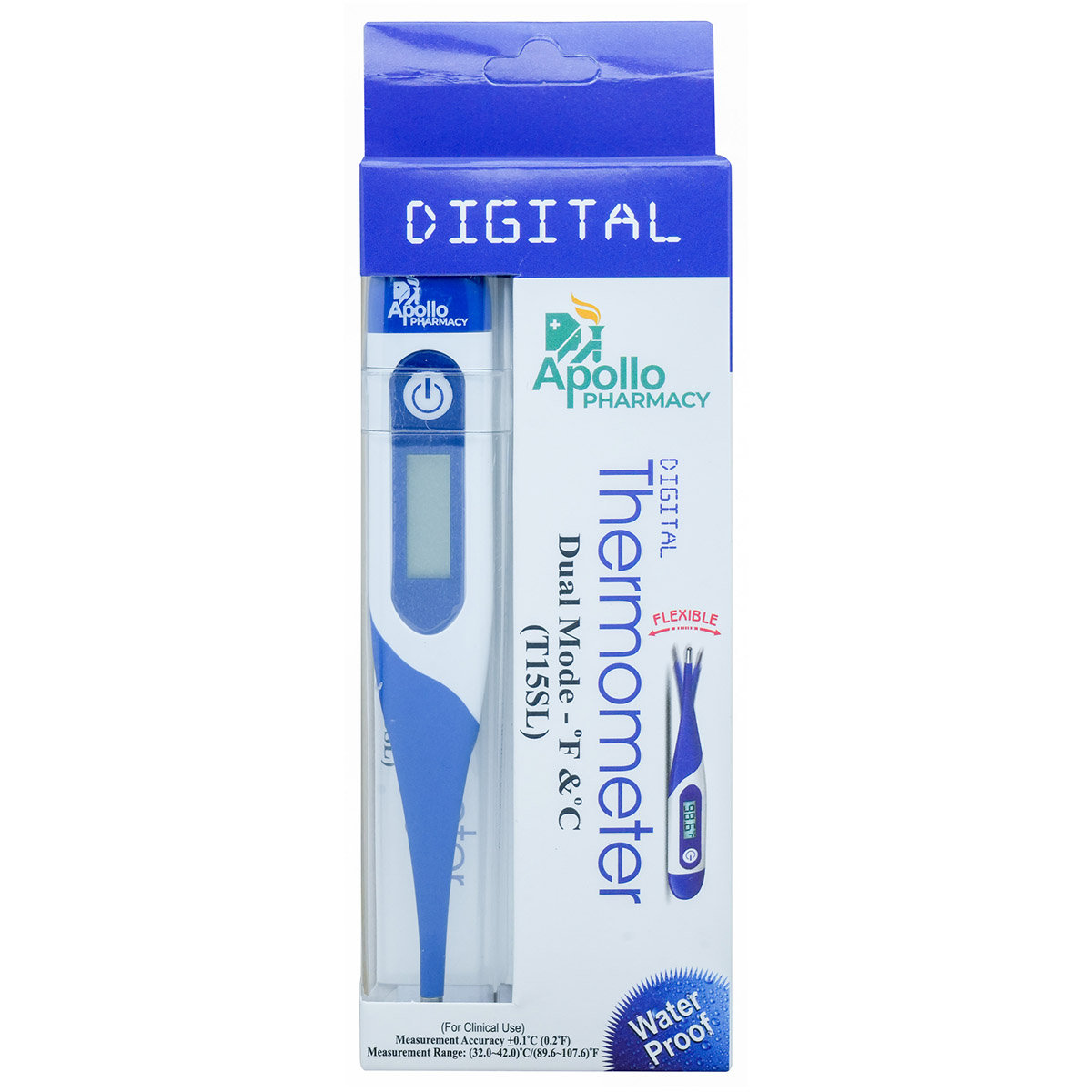
Apollo Pharmacy Digital Flexible Thermometer, 1 Count
₹119.70
MRP ₹133
10% off
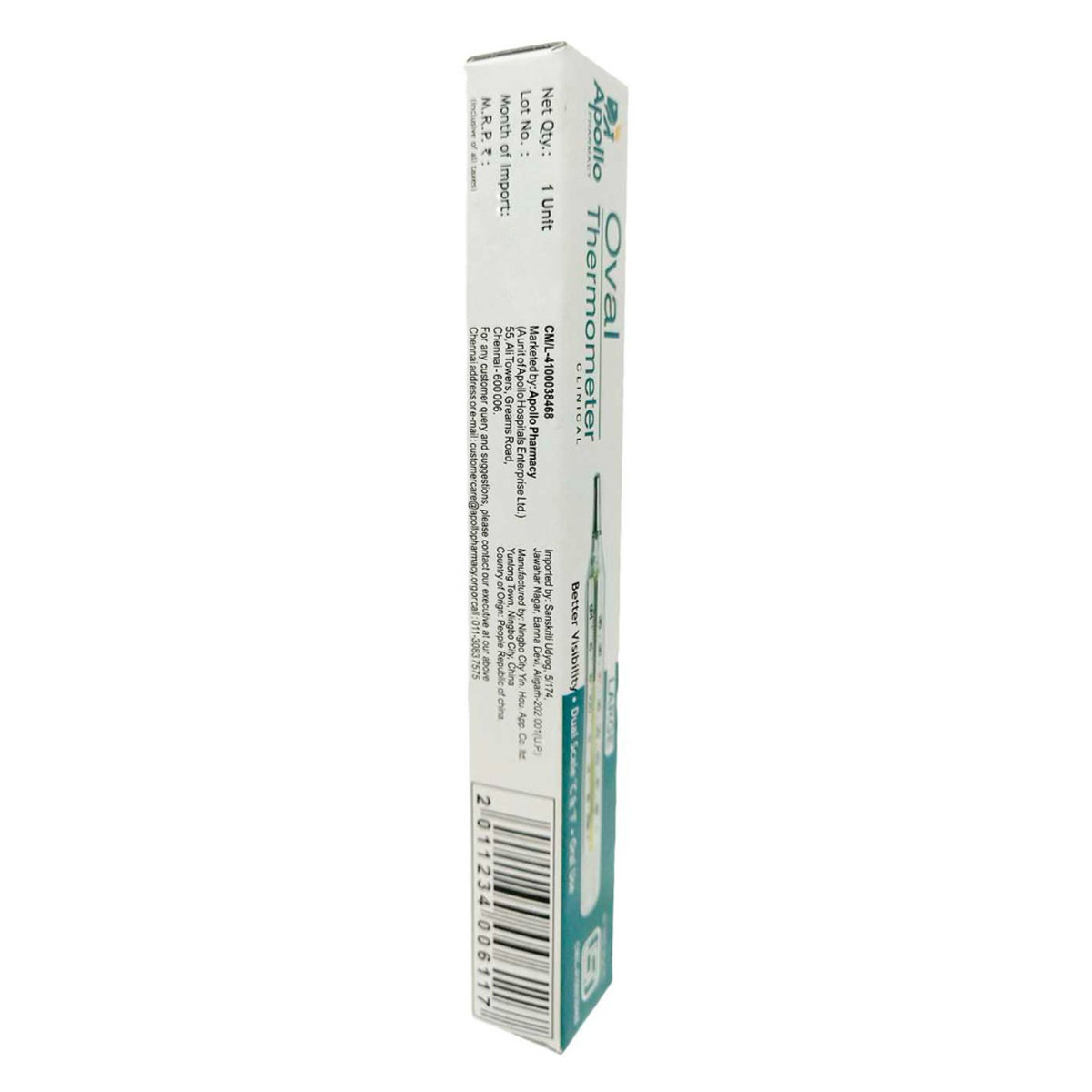
Apollo Pharmacy Oval Thermometer Large, 1 Count
₹130.50
MRP ₹145
10% off

Digital Thermometer, 1 Count
₹255.50
Get a thermometer today from Apollo Pharmacy!
Apollo Pharmacy is India’s most trusted and reliable online pharmacy that delivers authentic products and medicines. Apollo Pharmacy provides fast home delivery for healthcare essentials. Explore our wide range of thermometers online on Apollo Pharmacy and get accurate readings instantly!
Thermometers
A thermometer is a device that measures the temperature of a body. Thermo refers to heat and meter refers to a measuring device.
Types of Thermometers
There are different types of thermometers available based on their usage. Common types of thermometers are:
- Digital thermometers
- Liquid crystal thermometers
- Food/Meat thermometers
- Infrared thermometers
- Mercury/Alcohol thermometers
A digital thermometer is a common type of thermometer and is the safest to use. It comes in the form of a traditional stick or has a probe attached at the end that helps check the temperature of the forehead. In both forms, the temperature is shown on an easy-to-read screen.
Liquid crystal thermometers are sensitive to heat and contain several panels that change the colours depending on the temperature.
A food/meat thermometer is used for cooking. It sticks directly to your food to ensure the food is fully cooked.
A non-contact thermometer is also known as an infrared thermometer. It enables you to check the temperature of the body from a distance.
Mercury/Alcohol thermometers: The first mercury thermometer was invented in 1714. Mercury thermometers are filled with mercury, which is a dense poisonous metal; hence, the EPA recommends handling this type of thermometer with extreme care.
Uses of thermometers
- A thermometer helps in measuring the body temperature in various ways. Some thermometers are designed for specific areas of the body.
- Tympanic thermometers are used for the ears. These are typically small and enter into the ear canal to check the temperature.
- Axillary thermometers should be placed under your arms. Some digital thermometers can also be used as axillary thermometers.
- Rectal thermometers are inserted into the rectum of children who are unable to sit still and are also recommended for infants.
- Oral thermometers are used under the tongue. Mercury thermometers or digital thermometers are mostly used to measure oral temperature. Pacifier thermometers are designed for 3-month-old babies.
- Temporal artery thermometers and infrared thermometers have become popular in recent years. These are comfortable, easy-to-use thermometers that are used across the forehead.
With the use of a thermometer, you can easily find out whether you have a fever or not. Your health should be your top priority, so you should have a thermometer available with you all the time.
Frequently asked questions
An accurate thermometer will read 32°F. To test the accuracy of a thermometer, insert it into the centre of the ice bath and mix gently for another 15 seconds, keeping the metal stem surrounded by the ice cubes and moving it constantly. Make sure your thermometer does not rest against the ice cubes, or you may get a low reading.
Test your digital thermometer after every six months to ensure it is working properly, using the boiling water or ice bath method. Several digital thermometers have reset buttons to adjust the temperature settings.
The normal range of temperature on the forehead is approximately between 35.4°C and 37.4°C.
It is crucial to measure the body temperature accurately to know whether you have a fever or not. A forehead temperature usually ranges from 0.5°F (0.3°C) to 1°F (0.6°C) less than an oral temperature.
The average body temperature is 98.6°F (37°C). As per recent studies, the normal temperature of the body may range from 97°F (36.1°C) to 99°F (37.2°C).
If your temperature is 103°F (39.4°C) or higher, then you must call your doctor. If you experience symptoms such as unusual skin rash, headache, and fever then seek immediate medical assistance.

